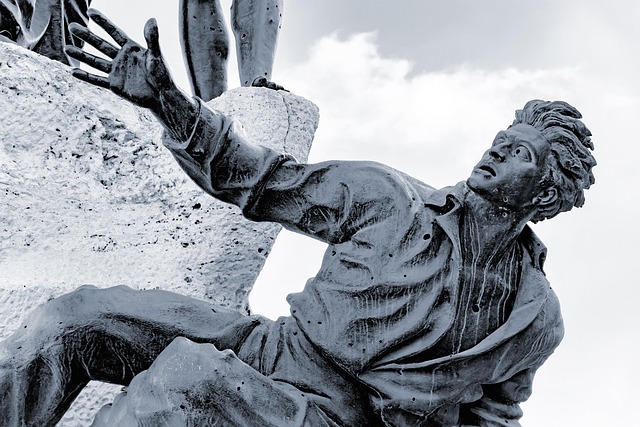In the everyday fabric of human experience, faith often emerges as a quiet yet powerful influence on the decisions that shape our lives. When faced with choices that carry ethical weight, many people turn inward to their spiritual convictions, seeking guidance that transcends personal preference or social pressure. Faith, in this context, becomes more than a set of beliefs; it functions as a moral compass that points toward what is right, just, and compassionate. By exploring how faith interacts with moral decision‑making, we can better understand the role it plays in both individual conduct and collective values.
Faith as a Moral Compass
The notion of faith guiding moral choices is rooted in the idea that a higher principle provides clarity in situations where human reasoning alone may fall short. This principle is often articulated through doctrines, scripture, or the teachings of religious leaders, offering a framework that emphasizes virtues such as honesty, humility, and charity. When a person aligns their actions with these virtues, they experience a sense of coherence between belief and behavior, reinforcing the internal consistency that many describe as a “faithful life.” This alignment is not merely a personal comfort; it shapes how individuals interact with others, respond to injustice, and prioritize the well‑being of their communities.
Core Virtues Derived from Faith
While each faith tradition has its unique emphases, several virtues recur across religions, providing common touchstones for moral deliberation. These core virtues often serve as the building blocks for ethical action:
- Compassion – A deep empathy for the suffering of others, motivating acts of kindness.
- Integrity – The consistency between inner convictions and outward conduct.
- Justice – The commitment to fairness and the protection of the vulnerable.
- Humility – A recognition of one’s limits, fostering openness to learning and collaboration.
- Forgiveness – The willingness to release resentment, enabling reconciliation and peace.
The Challenge of Moral Dilemmas
Even with a clear moral framework, real‑world scenarios can place faith‑inspired principles in tension. Moral dilemmas—situations where two or more values clash—require careful analysis and a willingness to engage with uncertainty. Faith offers guidance by encouraging individuals to consider the broader implications of their actions, beyond immediate outcomes. It invites reflection on questions such as: Is the short‑term cost justified by a long‑term benefit? Does the action uphold the dignity of all parties involved? By inviting such reflection, faith helps believers navigate the gray areas that lie between absolutes.
When Faith Meets Conflict
Conflicts between faith directives and societal norms can be particularly stressful. For example, a religious community might view a modern practice as incompatible with its teachings, while society at large regards it as a form of expression or rights. In these instances, believers often engage in dialogue within their faith community, seeking consensus or reinterpretation of texts. The process may involve:
- Consultation with respected spiritual leaders or scholars.
- Study of foundational texts to identify guiding principles.
- Application of reasoned ethics to contemporary contexts.
- Dialogue with the wider community to foster mutual understanding.
- Decision-making that balances fidelity to faith with respect for pluralism.
Faith’s Role in Social Justice
A significant aspect of faith‑driven morality involves social justice. Many religions teach that caring for the marginalized, challenging oppression, and seeking equitable systems are acts of devotion. This perspective turns individual conscience into a catalyst for collective action. When faith motivates people to advocate for fair wages, access to education, or environmental stewardship, the resulting movements often gain moral authority and persistence. The commitment to justice becomes not only a personal aspiration but a communal responsibility, reinforcing the idea that faith can be a powerful engine for societal transformation.
Examples of Faith‑Inspired Social Movements
Historically, faith has been a cornerstone of many social justice efforts. From the abolition of slavery to the civil rights movement, religious leaders have mobilized congregations to confront systemic inequity. In contemporary times, faith communities continue to address issues such as poverty alleviation, climate action, and refugee support. These initiatives illustrate how a shared spiritual conviction can translate into tangible policy advocacy, charitable projects, and public dialogue—demonstrating that faith does not merely coexist with morality; it actively shapes it.
Personal Testimony: Living Faith Through Moral Choices
To illustrate how faith influences everyday decisions, consider the following personal account. Maria, a devoted follower of her faith, faced a decision about accepting a job offer that would require her to relocate far from her family. Her religion teaches the importance of family support and community involvement, yet the new role promised to improve the lives of countless patients in a underserved region. Through prayer and consultation with mentors, Maria weighed the ethical imperatives of compassion and responsibility. Ultimately, she chose the position, believing that her presence could foster long‑term healing while maintaining regular visits home. This choice reflects the complex interplay of faith, personal duty, and the broader mission of service.
Balancing Faith, Reason, and Empathy
In moral deliberation, faith often interacts with rational analysis and emotional intelligence. A balanced approach encourages believers to draw from scriptural teachings, ethical reasoning, and compassionate understanding. By integrating these dimensions, individuals can arrive at decisions that are principled yet adaptable to context. This holistic perspective ensures that faith remains a living guide rather than a rigid rulebook, capable of evolving with new insights while preserving core values.
Practical Steps for Moral Decision‑Making
Those who wish to strengthen the influence of faith on their moral choices may find the following routine helpful:
- Reflect on the relevant principles embedded in your tradition.
- Assess the potential impact on all stakeholders involved.
- Seek counsel from trusted spiritual mentors or peer groups.
- Consider the long‑term implications beyond immediate benefits.
- Act with integrity, and be prepared to revise the decision if new information arises.
Conclusion: Faith as a Continuous Moral Dialogue
Faith’s influence on moral choices is dynamic, encompassing personal conviction, communal dialogue, and societal engagement. It provides a foundational lens through which individuals interpret ethical challenges, encouraging actions that resonate with deeper spiritual truths. By fostering compassion, justice, and integrity, faith contributes to the cultivation of a moral culture that values both individual conscience and collective responsibility. In a world where moral questions grow ever more complex, faith can serve as a steady companion—guiding, questioning, and inspiring the path toward a more compassionate and equitable society.




